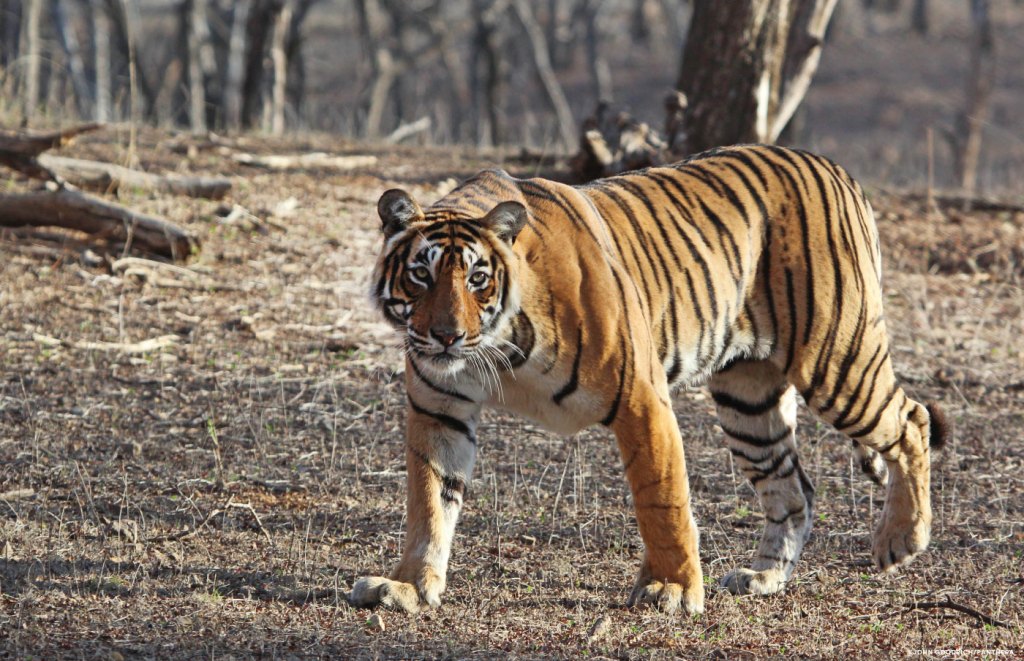Photo: Flickr / CC.
Poachers had speared the beast in the back. It was the third de-tusked elephant carcass Marc Goss had found in four days, an alarming figure not only in his native Kenya but across a region already devastated by the illegal ivory trade. In Asia, where ivory is stupidly believed to boost libido and cure cancer, her tusks will net the hunters roughly $800 USD.
“It’s pretty grim,” Goss, who heads up the Mara Elephant Project, told the Sydney Morning Herald. “It’s an elephant without a face. It’ll be eaten by hyenas now.”
Videos by VICE
To help beat back poachers—with demand for illicit ivory in China and Thailand having doubled since 2007, according to the UN Enviroment Program, they are more brazen than ever—Goss is taking to what’s fast become an essential component in every poacher poacher’s toolkit: small-fry unmanned aerial vehicles.
Drones offer the sort of leg-up that for conservationists like Goss is a no brainer. When he spins up a small $300 AR Drone over the land MEP monitors, a 30,000-hectare patch of savannah that borders Kenya’s Maasai Marra National Reserve, Goss can easily spot encroaching hunters, and then alert authorities. Or so he hopes.
Either way, both drones and imaging technologies are becoming increasingly affordable as their capabilities get increasingly sharper, versatile, and user-friendly. The time has never been right to send in the drones over the ivory tragedy.
And yet it’s still not yet clear just how UAV technology will protect what’s left of Africa’s elephant and rhino herds, if it can at all. Conservation drones have yet to lead to the arrest of a single poacher.
Sure, Google awarded the World Wildlife Fund a cool $5 million to beef up its drone efforts to sniff out roving bands of poachers that stalk the savannah under the cloak of darkness with guns (and spears) drawn. But Kenya’s elephant populations, to say nothing of those in other African countries, now faces its gravest poaching threat in the last 25 years. At least 232 elephants have been slaughtered there in the year ending September 30, bringing the conservative total death toll to 616 since 2012, when some 40,000 of the animals roamed the East African country. As my colleague Jason Koebler noted, better technology isn’t necessarily always a magic wand when it comes to poaching. Even if it was, is it too little, too late? Only time will tell.
For now, the initial reports are maybe, just maybe, starting to stream in. And to hear Goss tell it, they’re somewhat surprising. Turns out it’s not just about getting real-time birds eye views, and this by sheer virtue of the fact that pachyderms, like many species, are sensitive to a drone’s drone: “We realised very quickly that the elephants hated the sound of [drones],” Goss explained. “I’m assuming that they think it’s a swarm of bees.”
So flip it on its head. Perhaps drones might be better, or additionally, used to startle at-risk animals like elephants, to divert them away from hazardous, poacher-heavy areas without harming or striking undo fear in the creatures. The idea occupies a unique space in an expanding suite of anti-poaching tech, including heat-sensing planes, DNA mapping, and hidden remote sensors.
For Goss, it comes down to capsaicin, the active ingredient in chili pepper. He hopes to add 10 more drones to his arsenal, all of which he’ll modify to be able to release capsaicin if and when elephants wander into harm’s way. It might sound a bit wacky, but consider that chili pepper-loaded paint balls “are being used in Zambia’s lower Zambezi region to deter elephants from high-risk zones,” the Herald reports.
It’s a proactive, not reative, approach to wildlife conservation and anti-poaching, which go hand-in-hand. This is precisely what WWF President Carter Roberts alluded to when he spoke to reporters at a drone event last spring: “The bad guys are extremely sophisticated, they have night vision goggles, helicopters, plenty of funding and resources,” Roberts said. “We need to up our game to combat what they’re doing.”
Even if that involves spices.



